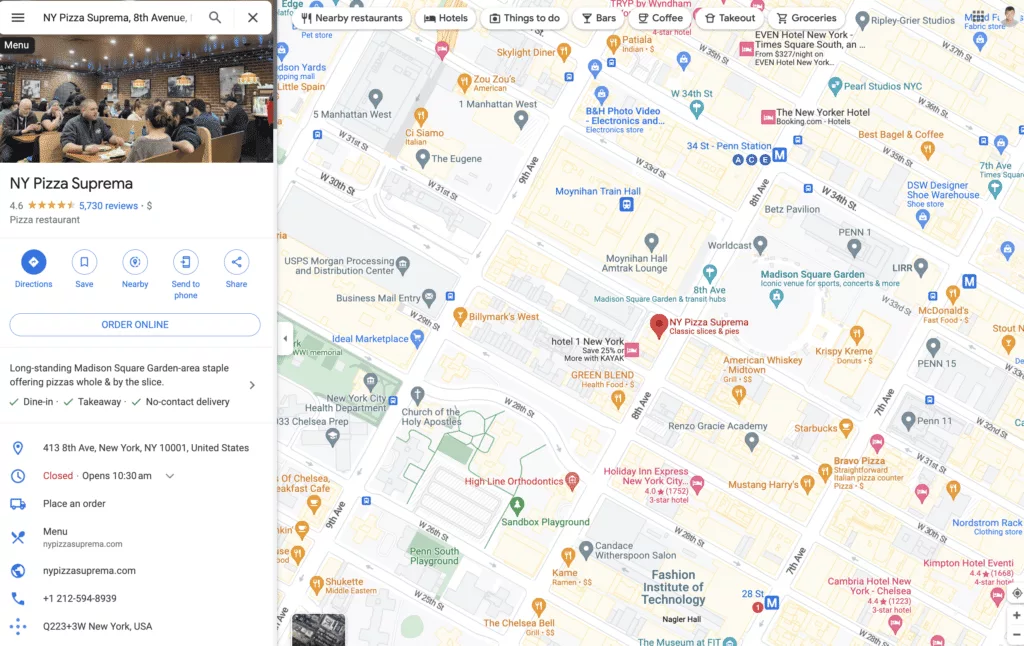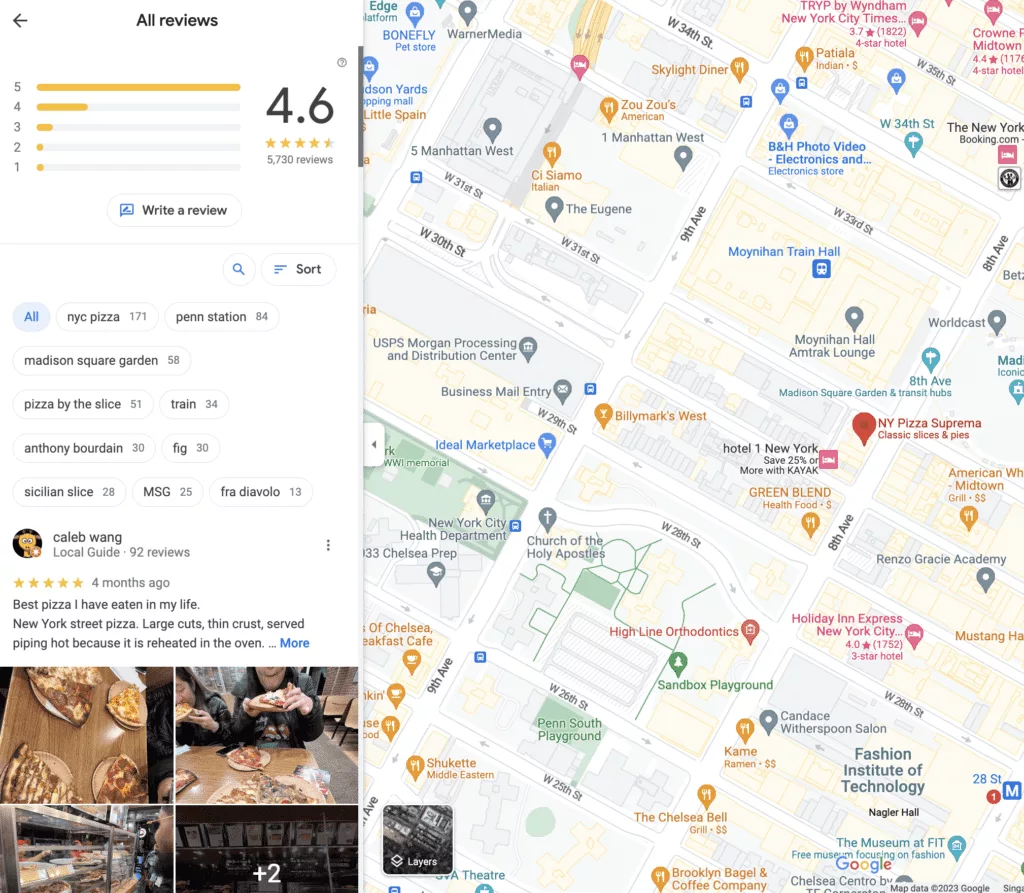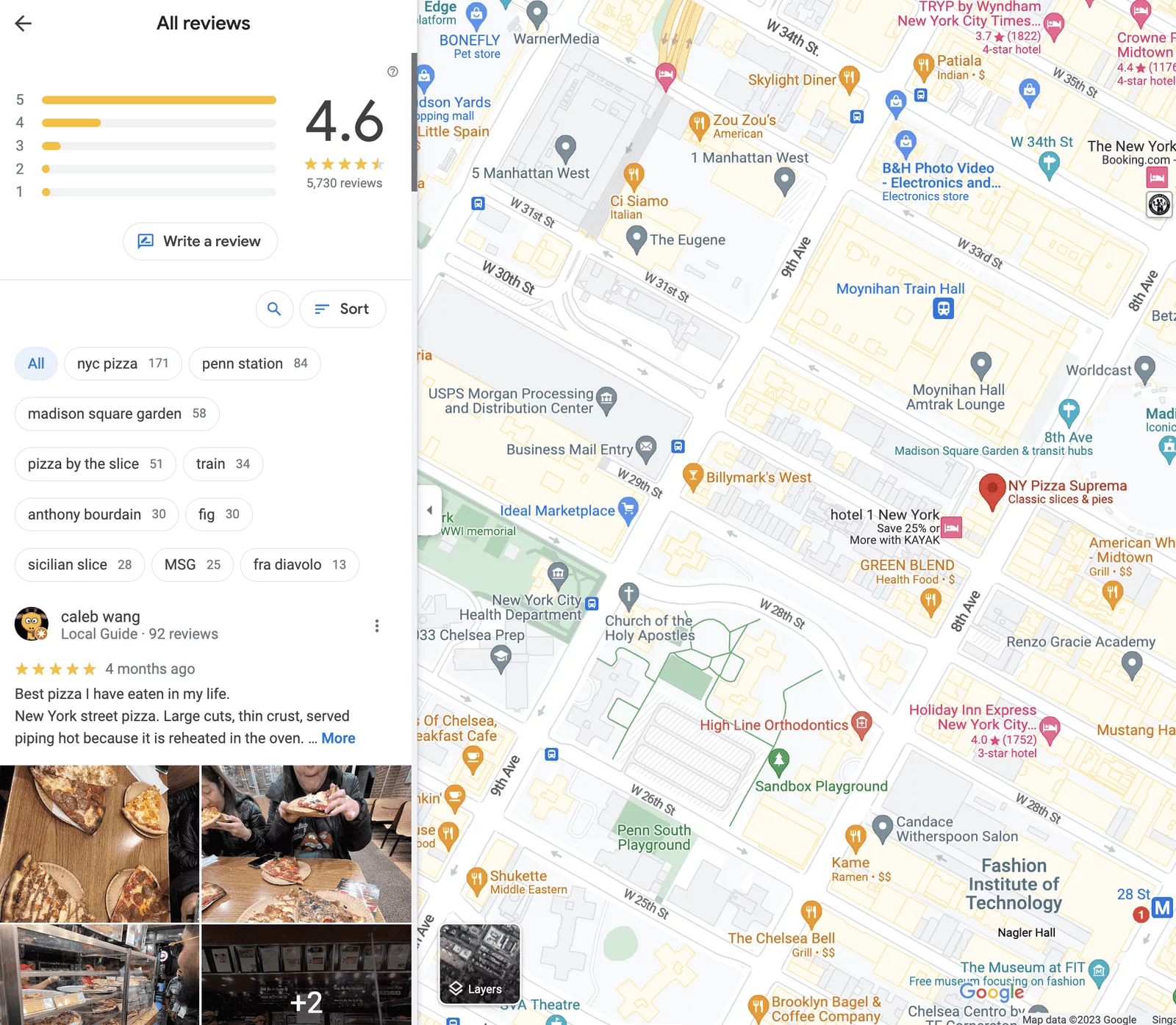The Google Local Guides program is all about celebrating local businesses and boosting their online presence. It gives customers the opportunity to review local establishments and earn points for every review they write.
But does it work? And if so, how? In this blog, we talk about everything you need to know about the program – its benefits, loopholes, and shortcomings. We also discuss whether you should join it or not.
What is a Local Guide?
A Local Guide is a person who shares photos, reviews, adds or edits places, answers questions, and checks facts on Google Maps.
– The Local Guides program was launched by Google in 2015.
– Local Guides help others by providing city information and contributing reviews.
– By contributing to the Google Local Guide Program, users can earn points and reap various benefits.
– Users can also find and follow friends and other people in the program website.
A local guide can earn up to 10 points per review contribution and 5 points per photo contribution. These contributions make local guides more credible and trustworthy to their communities.

‘Gamification encourages behaviors to gain points for the sake of gaining points’
Gamification is a popular and often effective approach to encourage behaviors that are beneficial to the user. It involves using game-like incentives, such as points or levels, to guide users’ behaviors. The idea behind gamification is that it can make a product more engaging for the user, thus encouraging them to take action and go through with the desired behavior.
However, the gamification of local guides is flawed for several reasons. First, badges are not publicly visible, which prevents consumers from accurately gauging their level of trustworthiness. Second, users are more likely to equate their level with trust than they would with an earned or voluntary achievement.
This could result in local businesses being perceived as less trustworthy and credible on the basis of their local guide badge level rather than on the strength of their business itself. Third, gamification can incentivize users to gain points without considering the community’s benefits.
For instance, local businesses could offer extra incentives such as free meals or discounts to Local Guide reviewers on social media platforms. This practice could lead users to leave reviews for the sake of points rather than for the benefit of the community.
Finally, local businesses should enforce moderation on review platforms such as Google Local Guides to prevent spamming and abuse of the system. In this way, they can ensure that consumer reviews are genuine and reflect their experience with a business.
‘I almost look at non-Guide reviews as more legitimate’
The Local Guide program has led to more bad actors infiltrating the system. It creates an environment where businesses and consumers feel compelled to become local guide for a few reasons.
– A badge that local guides display gives off a false sense of trustworthiness to people.
– It’s easy for businesses to become local guides and earn the badge. Local guides can be hired to review local businesses via an app or website, and they need only take photographs of the business’s exterior and write a short review on their experience with the business.
– This process is also easy for bad actors to participate as well. They can pay local guides to write positive reviews about their business on websites such as Yelp and Google, which are easily accessible to the public. With so many bad reviews being posted online, local businesses can’t afford to ignore negative reviews.
The badge has led local businesses to become complacent and unwilling to provide feedback or customer service because they assume they will receive great reviews from local guides. It is essential that local businesses do not get lured into this false sense of security by the badge.
‘There’s a myth that a Local Guide account and points lead to a higher authority in edits beings accepted’
According to Consumer Watchdog’s study, Local Guides accounts are often used to unfairly influence the rankings of businesses and to censor negative reviews. This has a negative impact on consumers and businesses, as they cannot rely on accurate information from Local Guides.
The study also found that many Local Guides employees have no business or editorial experience and that they are not held accountable for their actions. This is causing many local businesses to lose trust in the program and stop participating.
As a result, Local Guides is harming small businesses, as they cannot afford to hire professional web designers or marketing consultants. The Local Guides program should be discontinued to protect businesses and consumers from its harmful effects.

‘The Local Guide badge is a hint that we use to find spammers’
The Local Guide badge is a hint that some businesses use to find spammy reviews on Google Maps and Google My Business. Companies that sell reviews are known to create fake accounts in order to become Local Guides, which they then use to write fake reviews. This is often seen as a symbol of trustworthiness, but the icon is used by bad actors to identify fraudulent businesses. As a result, it’s important for Google to rein them in and enforce moderation policies to stop spammers from abusing the system.
Postali’s Dan Foland deals with spam every day and uses the Local Guide badge as a hint to identify bad actors. A local business owner can earn the badge by providing high-quality content and interacting with customers on Google Maps and Google My Business. However, this should not be used as a way of advertising or incentivizing fake reviews. Instead, businesses should focus on delivering great customer experiences and writing positive online reviews themselves.
‘Bad actors can make a real mess of things before a human or machine ever notices’
A study by the business research firm Forrester found that Google’s local guides program is failing businesses and consumers. The Local Guides program allows businesses to pay to have their listings displayed on Google maps and in google search results.
Businesses that participate in the local guides program must partner with a local guide coordinator, who helps businesses get on the program and promote their listing. The business may pay anywhere from $50-$4,000 for each month of exposure on google maps and google search results.
The study found that businesses who participate in the local guides program often experience higher prices, fewer customers, and less competition from rivals. In addition, the quality of listings has decreased since the inception of the local guides program.
One possible reason why local guides are failing businesses and consumers is due to bad actors taking advantage of the program’s structure without regard for local guidelines and best practices. Besides, it can be costly for business owners to participate in the local guides program.
Businesses are required to invest in digital marketing strategies such as website creation and social media promotion to ensure their listings appear high up in search results. But if bad actors abuse the system without regard for local guidelines, businesses may struggle to gain exposure through Google local guides.
‘Google doesn’t want to acknowledge that they have a serious problem’
Despite the many complaints, local businesses and consumers have yet to get a satisfactory response from Google on its Local Guides program. Many are frustrated with the lack of moderation after it failed to protect businesses from spam reviews. In fact, many local business owners have reported that they had to spend money on marketing and advertising just to attract customers and lead to profit.
Other consumers are frustrated by the lack of customer service for local business listing in the search engine results page (SERPS). This is because Google failed to give them a fair chance despite providing quality content and local business listing. The public is increasingly wary of Google’s Local Guides program due to its lack of transparency and regulation.
This could hurt local businesses as it provides them less opportunity to show their worth. Also, if there’s one thing that local business owners can agree on, it’s that more oversight would be better for Local Guides. Still, it’s hard to know when the program will change for the good or bad.
How To Become A Local Guide On Google 2023?
If you’re interested in becoming a local guide on Google, it’s easy to do so. Simply sign up to become a local guide on Google, agree to the program rules, and start contributing to Maps by adding photos, videos, or reviews. After completing these steps, you’ll start earning points for your contributions and reach higher levels as you continue to contribute.
Once you’ve reached the level of local guide expert, you can earn additional benefits such as access to local events and discounts from local businesses. Becoming a local guide on Google is a great way to become part of the global community of explorers and share your favorite places with others.
Re: Good guides gone bad: How Google’s ‘Local Guides’ program fails businesses and consumers
There have been negative reports surrounding Google’s Local Guides program, with media reporting of spammers, gamification, abuse, and misuse among users. These negative perceptions of the program have given rise to negative reviews on professional platforms.
One such review expressed concern about the program’s ability to moderate spam comments or reviews, with the thought that these are important for local businesses to succeed.
Another critique suggested that “professionalism” is not a keyword for the local guides program and that it is prone to manipulation and abuse.
Other reviewers expressed concern about the bad actors among local guide users, with a view that local guides should be a professional forum for discussions and reviews. A discussion was also opened on the Google Local Guides Connect forum where various perspectives were discussed.
A positive perspective on the program has been discussed in various forums as well, saying that it can help local businesses get more exposure and engagement from their customers.
However, it requires user moderation and monitoring in order to ensure positive outcomes for businesses and consumers.
The steep competition in the local business market has led many businesses to resort to unethical practices in order to stay profitable.
Therefore, it’s crucial for local guide users to be open-minded and consider multiple perspectives before making any comments or reviews on local guides forums.
Google’s ‘Local Guides’ Program – A Study on Its Failures
The ‘Local Guides’ program by Google is a great initiative that has been very beneficial to local businesses, but it has failed to deliver the intended results due to lack of moderation and spam reviews. Reports suggest that the program is not incentivized monetarily, which makes it difficult for business owners to attract good reviewers.
Professional opinion perceives the program as bad actors, gamification, abuse, and misuse. Suggestions include enforcing more moderation, giving spammers warnings, and limiting them to one review and one photo a week. Open-mindedness is necessary to hold conflicting views as the program can be seen as a way to gain access to information, but can also be seen as a way to exploit businesses.
Frequently Asked Questions
What is Google’s ‘Local Guides’ program?
Google’s Local Guide program is a global community of explorers who share photos, and reviews, add or edit places, answer questions, and check facts on Google Maps.
Contributing to the Local Guide program, such as uploading pictures or leaving reviews, earns points which can be used to unlock benefits.
Some of the benefits you can attain through contributing to the Local Guide program include free Google Drive space, insider access, and the ability to rate local places like eateries, tourist attractions, and more.
What are the problems with the Local Guides program?
There are several problems with the Google Local Guides program. These include bad actor perception, gamification of the program, abuse and misuse of the system, lack of moderation, and a competitive atmosphere that rewards those who contribute the most.
Additionally, Local Guides have been responsible for adding more than 700,000 new places to Google Maps each month.
How can businesses avoid being affected by the Local Guides program?
To avoid being affected by the Local Guides program, businesses should monitor reviews and photos of their business regularly. Clicking on the profile of a local guide before trusting their reviews will help ensure that they are not gaming the system.
Businesses can also establish relationships with local guides to ensure their contributions are accurate and positive. In addition, businesses should report any incorrect or malicious reviews to Google.
Conclusion
It is incorrect to assume that the Local Guides program would benefit local businesses because it encourages people to review local establishments. As mentioned above, there’s no evidence to suggest that people are more likely to visit a business after reading reviews.
The program also doesn’t ensure that business owners are given any recognition or reward for participating in the program. In fact, Google has admitted that bad actors have been abusing the system by submitting fake reviews and earning badges.
This may not only damage a business’s reputation but also make it harder for legitimate customers to find local establishments on search results pages. Therefore, Google must work toward improving its program before it can claim success with it.



